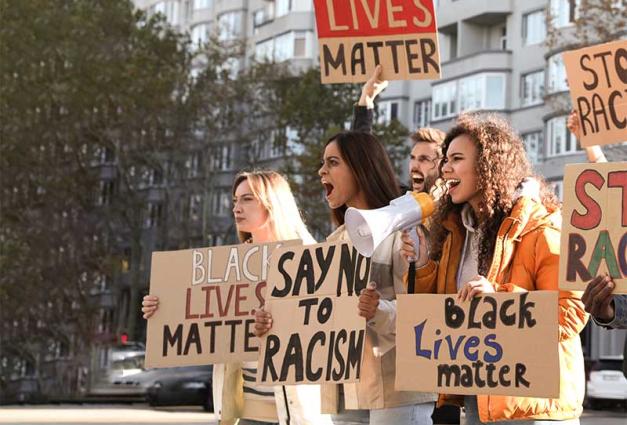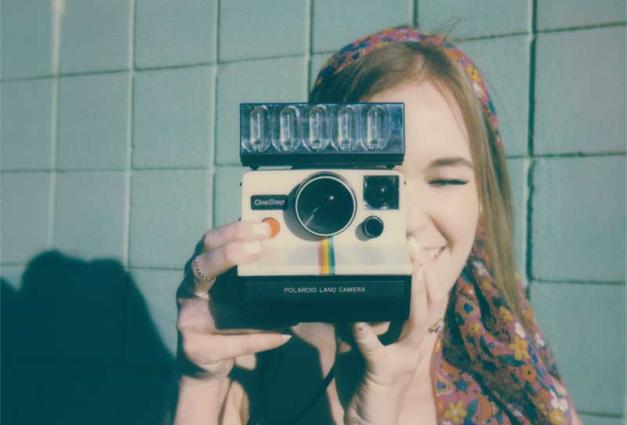Humans crave belonging. It is uncomfortable to think that others might dismiss your descriptions of who you are and how you fit in. Yet some very common demographic labels seem to inspire this kind of dismissal as a matter of routine. Multiracial people sometimes feel pressured to pick a single racial identity, and bisexual people are sometimes recategorized as gay or straight.
Prejudice and stereotyping do obvious harm—they can motivate unjust firings, assault, and even war. But there are also some less in-your-face implications of living in a society where your identity is in question. One of them is that you must live with the knowledge that people might think of you in ways that don't match how you see yourself.
Researchers have documented a tendency for Americans to react dismissively to biracial people. Biracial children are sometimes seen as confused and conflicted about their identities, and biracial adults report experiencing pressure to "choose a side." This doesn't mean that being biracial is inherently confusing—rather, monoracial people seem to assume that it is confusing because they dismiss biracial identities out of hand. And this experience can be jarring and stressful for biracial people, as discussed in this very blog not too long ago.
Researchers have documented dismissive reactions to bisexual people, too. Despite the fact that bisexuality seems to be more common than being gay or lesbian, some still assert that bisexuality is not a real sexual orientation. People who are not themselves bisexual may assume that there is something not quite right about bisexuality. This idea, too, has been described in Character & Context recently.
It seems that Americans (and some others, but more research on this topic has been done in the U.S.) sometimes view being biracial or bisexual as illegitimate. Race and sexual orientation are different in so many ways, yet we see some overlap in dismissive reactions toward particular race and sexual orientation groups. Is this a coincidence, or is there something about being seen as "intermediate" that evokes a dismissive reaction?
Why is Being "Intermediate" Looked Down Upon?
That's what Sylvia Perry, John Dovidio, Marianne LaFrance, and I set out to study. We attempted to characterize a common thread in negative reactions to "intermediate" social groups like biracial and bisexual people. In this context, we use the word "intermediate" to refer to groups that are perceived to share defining characteristics with more commonly discussed groups such as Black people, White people, gay/lesbian people, and heterosexual people.
First, we wanted to get people to think about the concept of an intermediate group on its own. We had them imagine visiting an alien society and learning about its social dynamics. There were groups of beings defined by spots on their bodies: a group with big spots, a group with small spots, and a group with both big and small spots. We thought that people might draw negative conclusions about these completely made-up intermediate groups, just because they are intermediate, not because of race or sexual orientation.
Sure enough, participants imagined that these intermediate creatures—the ones with both big and small spots—were not a "real group," they were "confused about their identities," and they were probably not as popular as their small-spotted and large-spotted counterparts. Even without any past experience or background information, people gravitated to the explanation that being "in the middle" was a bad thing.
We tried many variations on this procedure. For example, we tried saying the spots were a permanent biological characteristic, claiming that they were inherited, or presenting the groups as equally common so readers wouldn't assume the intermediate group was unusual. We even tried showing medium-sized spots instead of a combination of sizes. None of these variants changed the story. If participants saw a group that looked intermediate, they assumed that it would not be seen as a "real group," that its members would be confused about their identities.
Some of our other participants considered human social groups and made similar kinds of assumptions. For example, they figured that biracial (Black/White) people were not as much of a real group as Black people, White people, and Native Americans. They assumed that biracial people were more confused about their identities. The same went for bisexual people. In short, intermediate groups were seen as less legitimate than other groups. Plus, when people thought a group wasn't legitimate, they tended to be freer about expressing other negative feelings toward that group.
Race and sexual orientation are very different, but Americans often think about both in discrete terms. The dismissive reactions we observed may reflect some complex thought processes that are specific to how Americans view race and/or sexual orientation. However, we believe that these dismissive reactions also provide clues about how Americans understand the very idea of social groups in the first place. Learning more about them could help break down barriers to mutual understanding and belonging.
For Further Reading
Burke, S. E., Perry, S. P., Dovidio, J. F., & LaFrance, M. (2022). Distinctive negative reactions to intermediate social groups. Journal of Applied Social Psychology. https://doi.org/10.1111/jasp.12942 A free preprint is available online: https://doi.org/10.31234/osf.io/tcr4q
Matsick, J. L., & Rubin, J. D. (2018). Bisexual prejudice among lesbian and gay people: Examining the roles of gender and perceived sexual orientation. Psychology of Sexual Orientation and Gender Diversity, 5(2), 143–155. https://doi.org/10.1037/sgd0000283
Sanchez, D. T. (2010). How do forced-choice dilemmas affect multiracial people? The role of identity autonomy and public regard in depressive symptoms. Journal of Applied Social Psychology, 40(7), 1657–1677. https://doi.org/10.1111/j.1559-1816.2010.00634.x
Sara Emily Burke is an Assistant Professor in the Department of Psychology at Syracuse University. She studies variations in the way prejudice and stereotypes operate when they target different groups.




